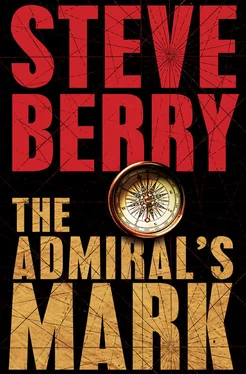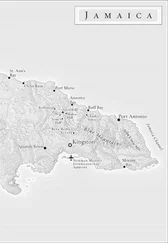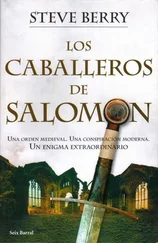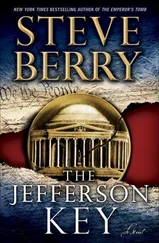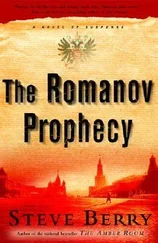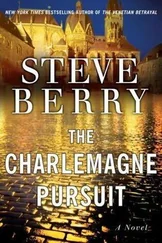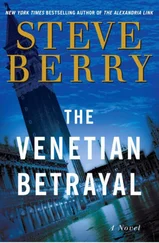Steve Berry - The Admiral's Mark
Здесь есть возможность читать онлайн «Steve Berry - The Admiral's Mark» весь текст электронной книги совершенно бесплатно (целиком полную версию без сокращений). В некоторых случаях можно слушать аудио, скачать через торрент в формате fb2 и присутствует краткое содержание. Год выпуска: 2012, ISBN: 2012, Издательство: Ballantine Books, Жанр: Старинная литература, на английском языке. Описание произведения, (предисловие) а так же отзывы посетителей доступны на портале библиотеки ЛибКат.
- Название:The Admiral's Mark
- Автор:
- Издательство:Ballantine Books
- Жанр:
- Год:2012
- ISBN:9780345534408
- Рейтинг книги:3 / 5. Голосов: 1
-
Избранное:Добавить в избранное
- Отзывы:
-
Ваша оценка:
- 60
- 1
- 2
- 3
- 4
- 5
The Admiral's Mark: краткое содержание, описание и аннотация
Предлагаем к чтению аннотацию, описание, краткое содержание или предисловие (зависит от того, что написал сам автор книги «The Admiral's Mark»). Если вы не нашли необходимую информацию о книге — напишите в комментариях, мы постараемся отыскать её.
The Admiral's Mark — читать онлайн бесплатно полную книгу (весь текст) целиком
Ниже представлен текст книги, разбитый по страницам. Система сохранения места последней прочитанной страницы, позволяет с удобством читать онлайн бесплатно книгу «The Admiral's Mark», без необходимости каждый раз заново искать на чём Вы остановились. Поставьте закладку, и сможете в любой момент перейти на страницу, на которой закончили чтение.
Интервал:
Закладка:
“I doubt it. But to be sure, I’d like to stay.”

Malone stared up at the Citadelle Laferrière.
The night had passed uneventfully and he’d managed a few hours of light rest, remaining alert. He’d driven Dubois’ car fifteen miles south of town, into the mountains, to Bonnet de l’Évêque—the Bishop’s Miter—which rose 3,000 feet into a clear morning sky. A twisting road led to a parking lot just below the impressive fortress.
A cobblestoned track wound from the lot upward and could be either walked or ridden on horseback. He was thirty minutes early for the 10:00 rendezvous. No need to come any sooner, since he assumed that was precisely what Simon had done. Instead, he was counting on something else as his failsafe.
He stopped and studied a placard that told him about the locale, long designated a UNESCO World Heritage Site. Walls 130 feet high, 20 feet thick. Built to outlast the ages . No foundation, instead the gray grim stones rested only on rock, the heights held together by a mortar of limestone, molasses, and cow’s blood. Two and a half acres of enclosed space, once home to several thousand soldiers and enough food and water to sustain five thousand people for a year. Henri Christophe intended the fortress to be his last redoubt. If the French returned and invaded the north coast, he and his people would have burned Cap-Haïtien and the surrounding land, then retreated to the mountains and used the few passes as choke points, surviving at any cost, the idea to never again be slaves. Of course the French never returned, but the citadelle became a symbol of their will to fight for freedom, and it remained Haiti’s most revered monument. Unfortunately, that pride was marred by the fact that Christophe used 20,000 slave laborers to build it, many of whom died in the process.
He began his walk upward to the entrance.
He knew what had happened here in March 1811.
Faced with a revolt, come to extinguish Haiti’s first monarchy, Christophe, instead of fighting, killed himself inside the Sans-Souci Palace with a silver bullet fired into his heart. His wife and children dragged the body up the mountain to the citadelle , where it was flung into a vat of quicklime, depriving the mob of its prize.
His climb lasted about twenty minutes.
Sheer cliffs protected on three sides, the only entrance subject to unimpeded cannon fire from above. He stepped through the gates, still on their hinges, and wondered if the legend that Christophe, to test the mettle of his men, marched a company over the tower’s parapet was true.
And the other tale.
How the king had buried gold somewhere within the walls.
The ramps and steps loomed dim and damp. He exited the cool interior into a sunny courtyard. Most of the building roofs were gone, save a few that were red-tiled. Amazing that a man who could not read or write, who’d worked as a dishwasher and waiter, could create something so impressive.
Settled in slavery, liberated in agony .
That was Haiti.
The unimpeded view for miles was of green slopes and rolling mountains. Terraces defined the fortress, creating several levels from which an attack could be repelled. Cannon were everywhere, some still on their carriages, most strewn about. Nearly four hundred of them, that was what the placard below had said. And a million cannonballs, stacked in pyramids, still awaited use. He spotted the mound in the center—solidified lime—where Christophe’s body had been dumped, and where it remained.
Then saw Simon.
To the right of the mound.
Maybe another fifty people milled about, admiring the grandeur left to crumble. Schwartz’s gun rested in Malone’s back pocket, shielded by his shirttail. The morning was warm and humid, his brow damp with sweat. He’d never been much of a gambler for money, not liking the house odds, but it seemed every day as a Magellan Billet agent was a gamble. Of late, he’d found himself tiring of the risks. Like now. Yann Dubois’ life depended on the bluff he was about to make, and the ante he hoped would come.
He stepped over to Simon and said, “I have it.”
“Show me.”
“Get real. If you want it, show me Dubois.”
A tour group appeared from within one of the buildings, the guide spouting something in English about how people said Henri Christophe would magically fly from the Sans-Souci Palace to the citadelle and his spirit was still seen roaming at night, looking for his soldiers. About ten formed the group, and they ambled closer to the lime pit. Simon seemed to resent the intrusion and drifted away. He followed, keeping an eye on what surrounded him.
“Herr Malone,” Simon said. “Do not take me for a fool. Herr Brown made that mistake. I would hope you learned from his error.”
“I have the page and, you’re right, the mark of the Admiral is there. I recognized it last night when you drew it. I don’t give a damn about that. I just want Dubois and the $600,000 in the Cayman Islands.”
Simon’s face lit with recognition. “Did Herr Brown cheat you?”
One of the advantages of an eidetic memory was the ability to recall exact details. Malone had been born with the gift, which had come in handy when he was a lawyer—and came in even handier in his current line of work.
“Account number 569328-78-9432. Bank of the Cayman Islands. I have a definite interest in that money.”
He’d thought about it last night and concluded that using what he’d learned from Simon’s own background check might work.
And it apparently had.
“I am aware of those funds,” Simon said, “and I have no claim to them. They are yours. I just want that missing page.”
“Then you’re wasting time.”
Simon seemed to know what was expected of him and pointed.
Malone turned to see Dubois standing a hundred feet away, across the courtyard, the man called Rócha beside him. Though he saw no gun, he knew Rócha was armed.
Okay, nearly all of the players were here.
He started toward Dubois.
“First, the page,” Simon called out.
He turned back. “After I make sure he’s okay.”
He held his ground, making clear that the point was non-negotiable. Simon hesitated, then nodded his consent.
He turned and kept walking.
If he’d read this right, Zachariah Simon was not a man prone to public displays. That was why he had Rócha. Not that Simon wasn’t a danger—it was only that the most direct threat lay in front of him, not behind.
His hand slipped into his back pocket and found the gun.
He leveled the weapon and fired at Rócha.
But his target had leaped to the left.
Dubois fled to the right. Hopefully, he’d get the hell out of here.
Malone huddled behind the limestone mound, taking refuge with Henri Christophe.
He turned back.
Simon had not moved.
People were scattering.
A few screaming.
A gunshot cracked and a bullet ricocheted off the stone a foot away from his face.
Rócha retaliating.
He’d seen no guards when he entered, but he assumed a place like this had to employ security. Gunshots and mayhem would draw attention.
So he needed to act fast.
He decided to draw Simon in. The Austrian continued to stand his ground, confident that Malone would not shoot him and that Rócha had the situation under control.
He whirled the gun, but before he could fire the earth around Simon erupted in explosive puffs. Three. Four. Five. Which finally caused a reaction as Simon realized someone other than Malone had him in their sights.
The shots came without a retort, which meant a sound-suppressed weapon was on the ramparts above them.
Читать дальшеИнтервал:
Закладка:
Похожие книги на «The Admiral's Mark»
Представляем Вашему вниманию похожие книги на «The Admiral's Mark» списком для выбора. Мы отобрали схожую по названию и смыслу литературу в надежде предоставить читателям больше вариантов отыскать новые, интересные, ещё непрочитанные произведения.
Обсуждение, отзывы о книге «The Admiral's Mark» и просто собственные мнения читателей. Оставьте ваши комментарии, напишите, что Вы думаете о произведении, его смысле или главных героях. Укажите что конкретно понравилось, а что нет, и почему Вы так считаете.
